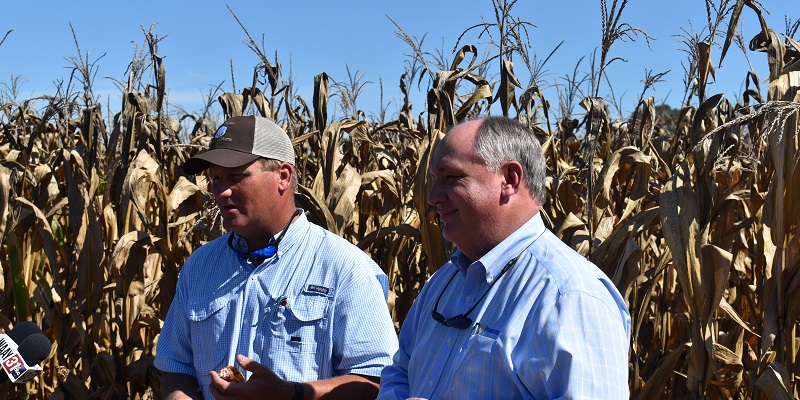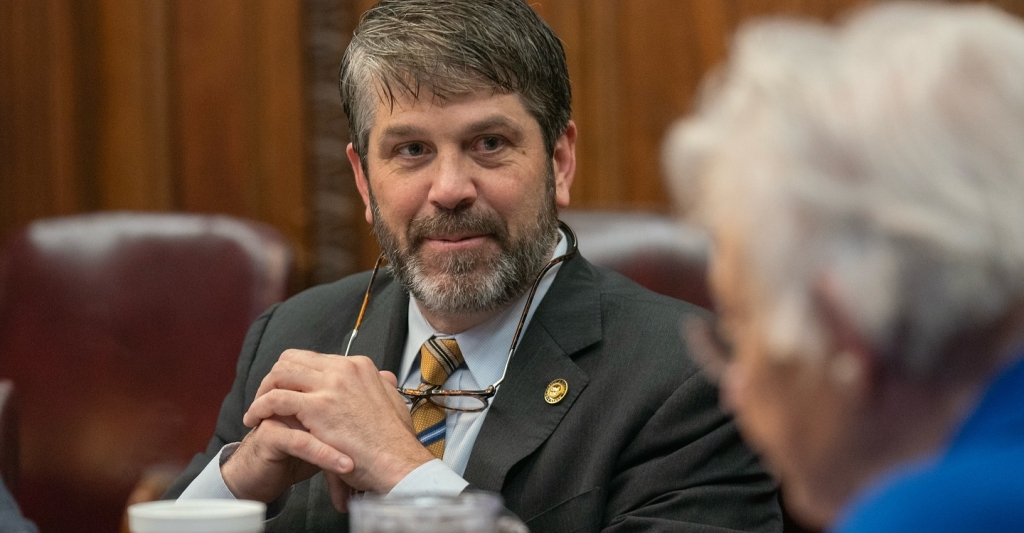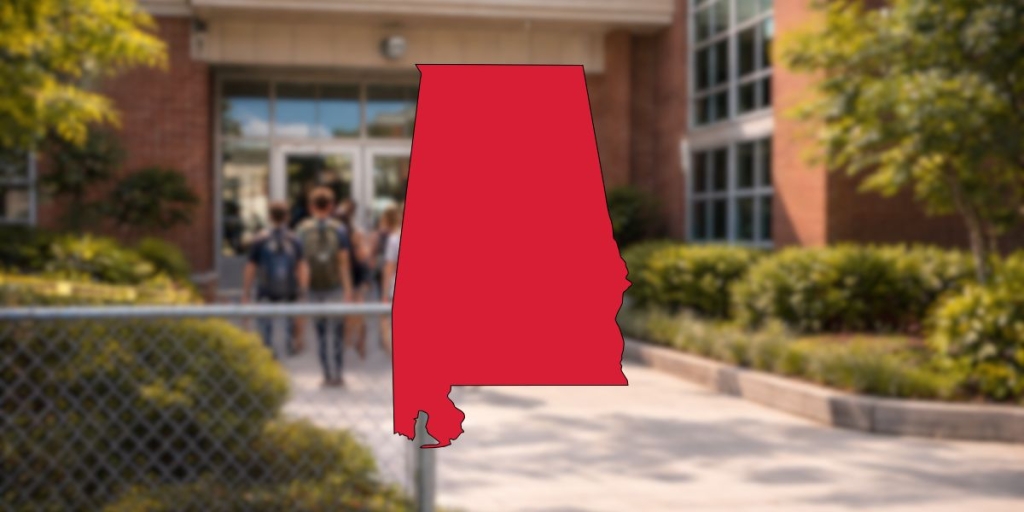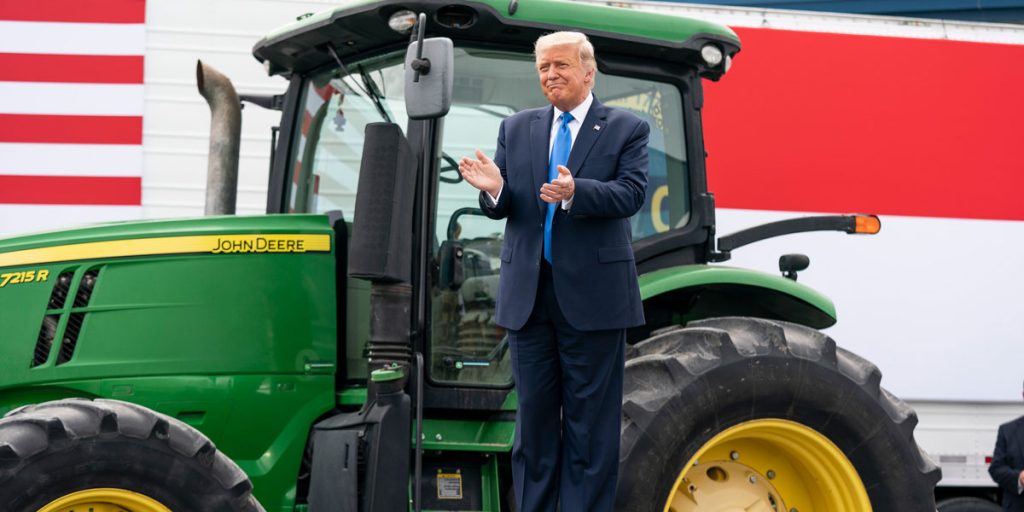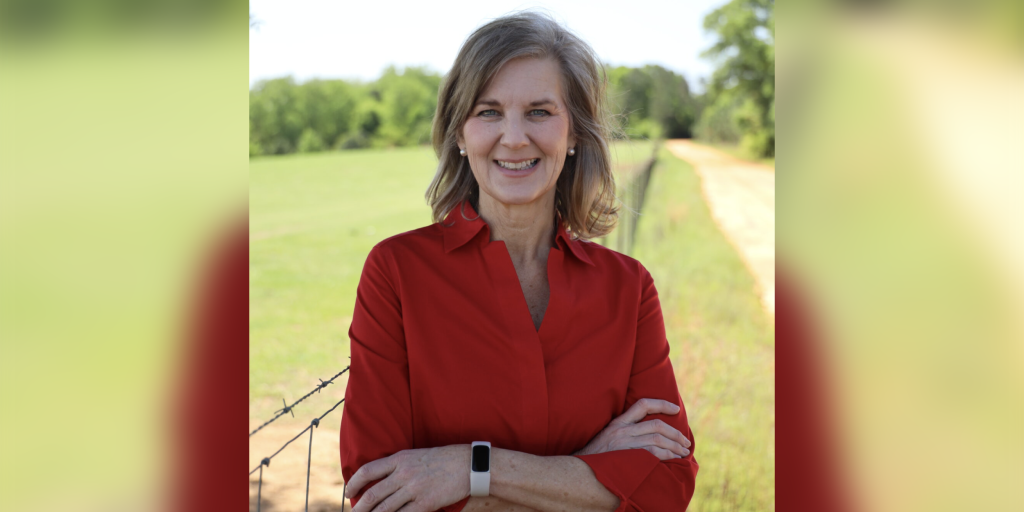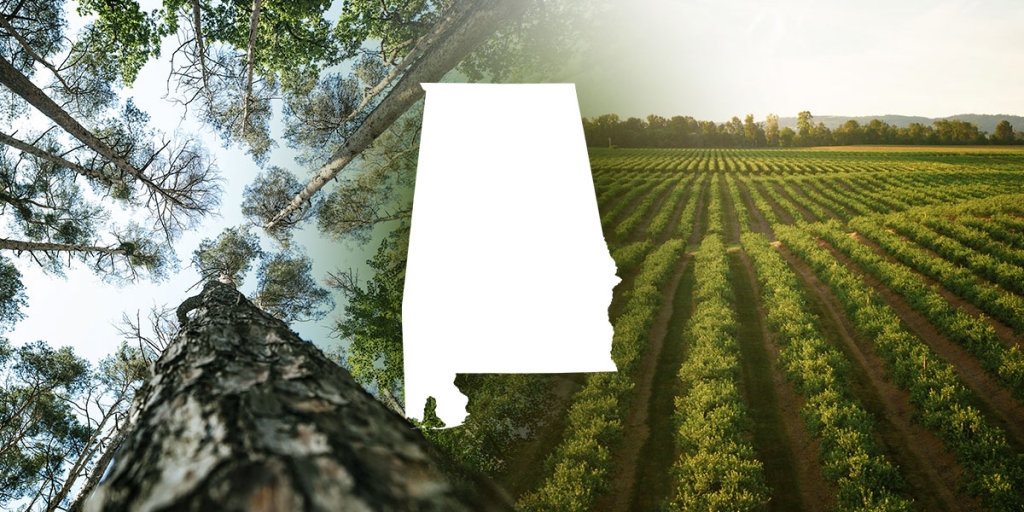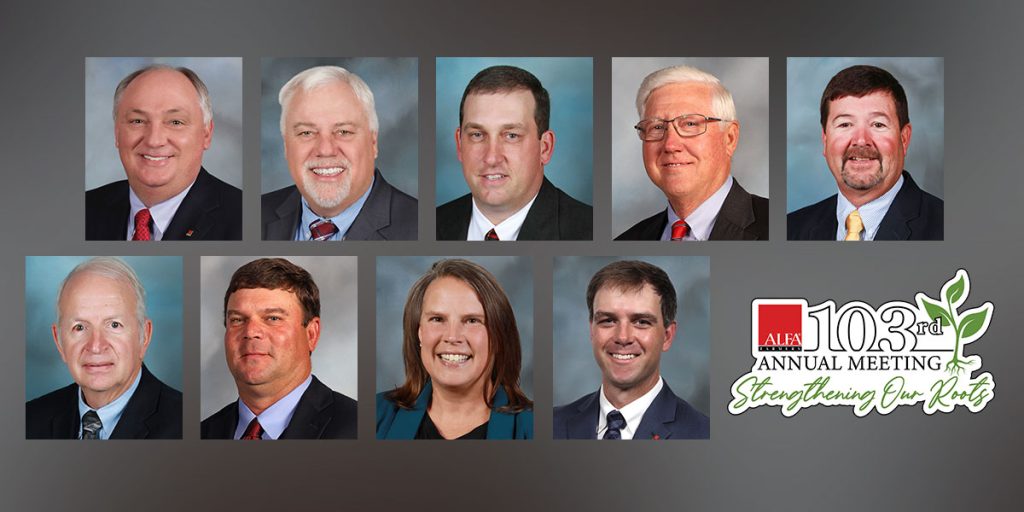ELKMONT – Even though it does not get the attention that other sectors of the Alabama economy receive, agriculture remains at the top of the chart for statewide economic activity.
That was the case made by Alabama Farmers Federation President Jimmy Parnell on Friday during the northern swing of ALFA’s crop outlook tour at Hobbs Farm in Limestone County, just a stone’s throw from the Alabama-Tennessee state line.
“As you may have heard, agriculture and forestry combined is the largest industry in the state of Alabama,” Parnell said. “It contributes more to the economy and employees more people than any of the other industries. We take a lot of pride in that. A lot is made about some of the industries in the state. We are certainly not against those industries. We’re glad to have them all in Alabama.”
“We have a different footprint,” he added. “You take a car manufacturer, something that may build in one place. Our farmers are spread across the whole state.”
Jessie Hobbs, the owner of the 3,000-acre Hobbs Farms that is spread throughout Limestone County and extends into Giles County, Tenn., hosted the event. With fall approaching, Hobbs said he anticipated to have a good year but down from the previous year.
“I don’t think we’ll have the yield per acre that we had last year because we almost had a Cinderella year last year,” Hobbs said. “But I still think, on average, it’ll be a good crop this year.”
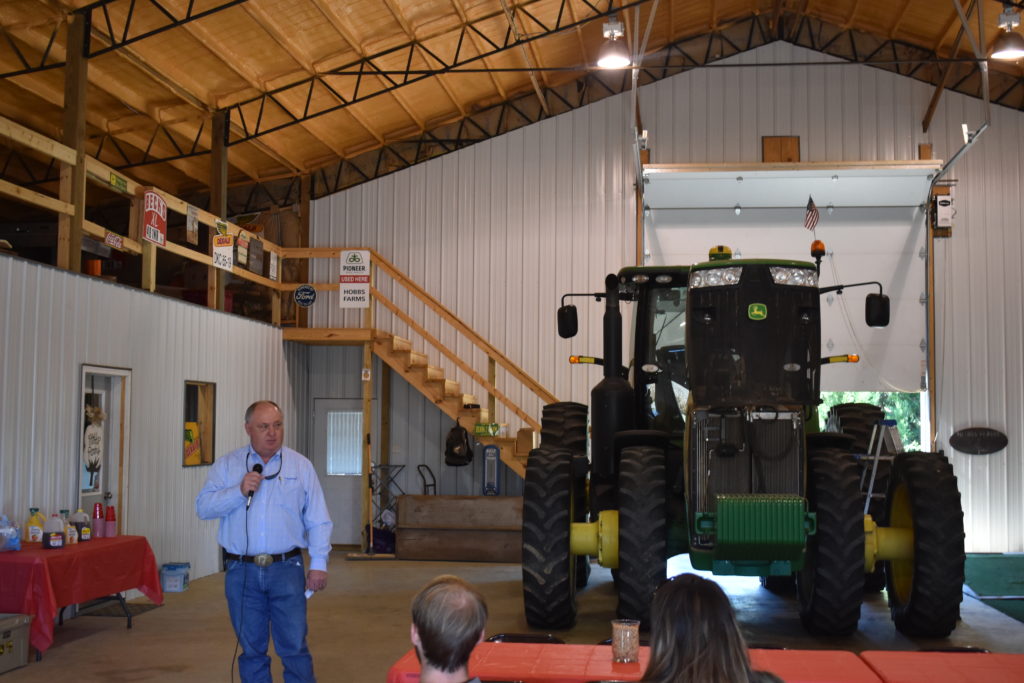
Hobbs, an Elkmont city councilman and fifth-generation farmer headquartered in northern Limestone County, put a particular emphasis on crop rotation, a practice he has implemented since taking charge of Hobbs Farm.
Hobbs told Yellowhammer News his 3,000-acre farm is divided evenly between corn, cotton, and soybeans and wheat, which can be both planted on the land in a given year. That, he said, had benefits for the land and economic ones as well.
“Years ago in Alabama, King Cotton was the throne winner,” Hobbs said. “We all grew cotton and cotton is what paid the bills and what we all grew up growing. I guess we hate to say it, but we were shooting ourselves in the foot. But we found out by rotating crops, we’ve been fortunate to do it, and I think they’ve paid off big dividends. But one was rotation. Rotating the crops means you rotate the herbicides so you don’t have resistant weeds and you also rotate because of the pests. Each crop has specific pests, but if you rotate the crop, that means next year the pest is gone, and it is easier to control it because you keep them guessing as well. But also, with rotating crops, you rotate your money aspects.”
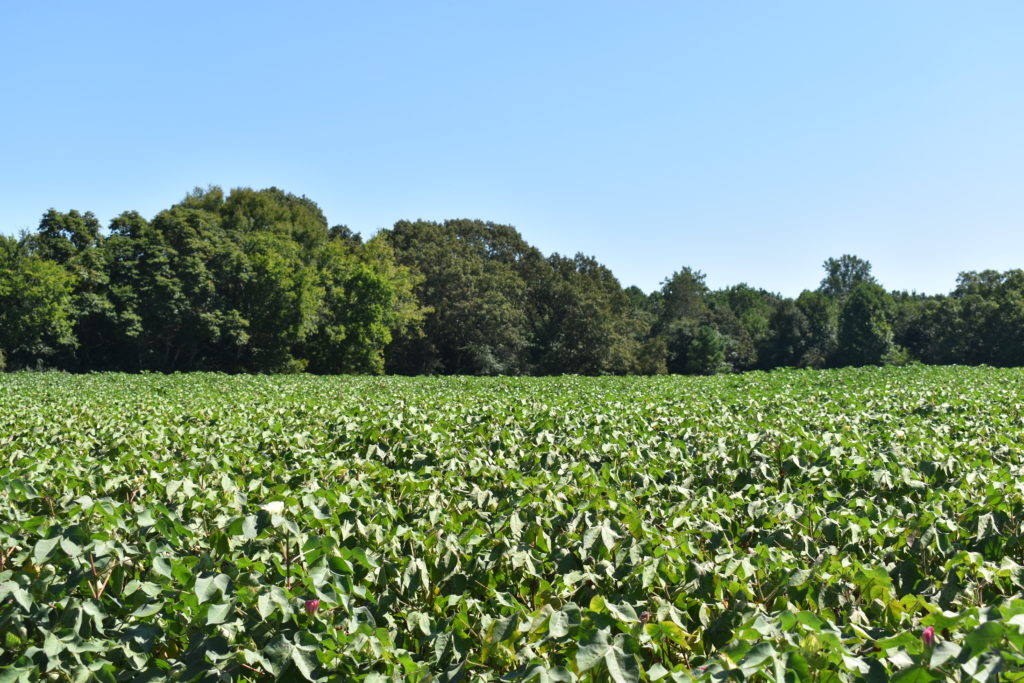
When asked about the challenges he faces, Hobbs said labor was a difficulty, especially as technology has improved to aid farmers.
“One of them is labor,” Hobbs said. “Our labor force in agriculture is pretty tough. You have to have an individual that can run a tractor per se, with a large piece of equipment not only in the field but up and down the road, to be safe and do both. But he also has to be able to run a computer now because most of our equipment is computerized. Used to, years ago, we worked on a field basis. Now with precision farming, we work farms on an acre basis.”
According to Hobbs, with those advances in technology, he knows what any particular acre requires as fertility and seed rating.
“I can plug into my computer, and it will actually help me put it placed at the right time, the right depth, with the right nutrients around it to make a crop,” Hobbs explained. “But you have to have someone that helps you implement that. Just because you put it on a disk, you’ve got to put that flip drive on that computer to make it work. I think that has always been our thing as the labor force because it is hard to find that type of worker. And it is long hours.”
As with any other business, Hobbs said there were also economic challenges for his farm, which include access to capital to cover expenses, both expected and unforeseen.
“The other thing I think would be the economic side of it,” he added. “Equipment is so expensive now. Fertilizer – everything that I’ve touched, it seems like it has gone up 100%. We had a tire just the other day that went flat on a piece of equipment. We had to have a replacement. I could not fix it. I could not repair it. And that tire – it was almost cheaper to trade the piece of equipment than put a set of tires on it. Because some of this equipment it can get up to $20,000 for a set of tires. You have to have enough money in the bank to survive. And on the same token, you have to have enough money to pay the bills and keep it all flowing.”
Parnell concurred with Hobbs’ assessment and added weather is a variable in the economics of agriculture.
“I agree with Jessie that it is about profitability,” Parnell added. “If you want to talk about what’s the biggest concern in agriculture, it’s profitability. Input costs are high. Margin is low, very low. Then you have the weather that you have to deal with. And the weather can take that small margin away from you almost in the blink of an eye. Profitability is a big deal.”
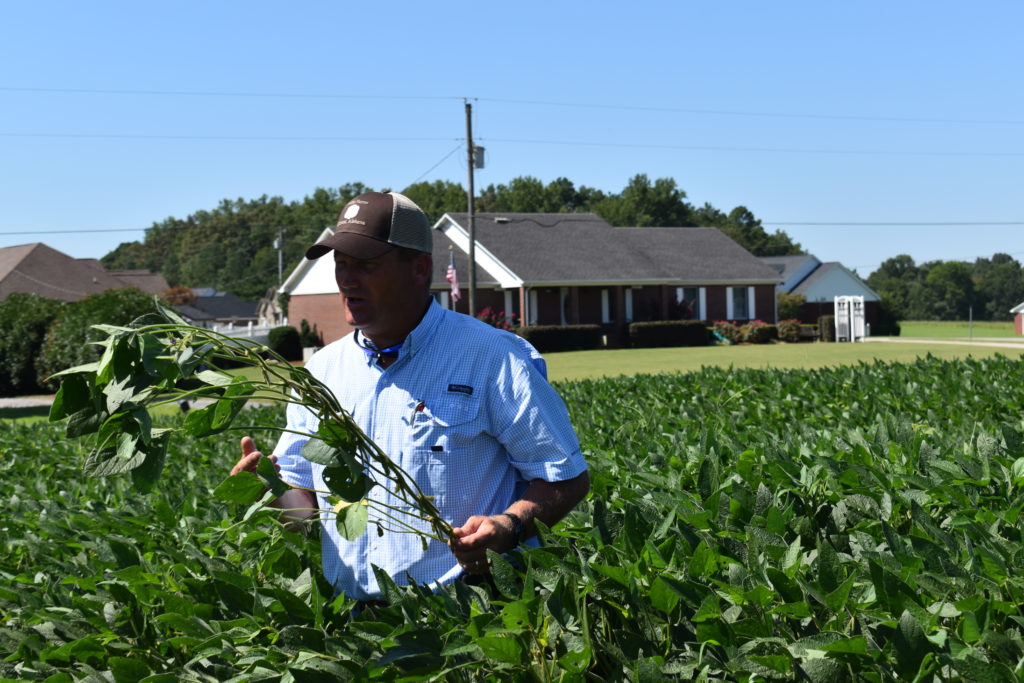
One challenge that is often overlooked that Parnell raised was the long-term future for agriculture and the next generation of farmers.
“Long term, though – our biggest problem is going to be the next generation of farmers, and I think profitability will fix that, is the reason I say it’s long term about profitability,” he continued. “Most folks in agriculture grew up on a farm. There are some exceptions. You can get started from scratch, but it is tough. You lack the knowledge. You lack the background that it really takes.”
“I am concerned if you’re talking about 50 years from now, who is the next generation of farmers?” Parnell added. “Are they out there? Will they be able to feed America and the rest of the world? What we produce today and America consumes all they want of it, then we sell about a third of what we produce as an industry. So it is important to the world that the American farmer is thriving so that they can have something to eat.”
Government over-regulation of agriculture has challenged farmers in the past. However, according to Parnell, it is improving.
“I would tell you it feels better than it has in the past,” Parnell said. “If you had asked me this question a year or three years ago, I would have talked a lot about regulation. We have a tremendous effort to regulate not only agriculture but all business. And that regulation, at times it seems like not a big deal until you stack regulation on top of regulation. And suddenly, it is a terrible, terrible situation. I think that is the thing. I am pleased with the direction we’re going. We are not doing away with regulation, but we are not trying to make new regulation every day.”
The inconsistency of the weather statewide will mean mixed results for agriculture in Alabama in 2019. Rainfall has been hit-or-miss locally and statewide, according to both Hobbs and Parnell.
“The very south end of the state was dry early in the year,” Parnell said. “It hurt their crops. They’ve gotten rain recently, and the crops that could wait for water are now thriving, doing pretty well. Corn in South Alabama was hurt pretty bad early. Central Alabama was OK early. It has gotten really dry late. The crops are hurting in Central Alabama.”
“There’s a lot of variation in the state,” he added. “Jessie and I were talking earlier there has been a significant variation just on the ground he farms here. Same way all across the state. This year we lived on pop-up rain showers, and you may have gotten a good rain, and your neighbor may have not gotten any or the other way just as well. Yes, the weather matters. It’s a big deal. It’s the one thing we don’t control.”
@Jeff_Poor is a graduate of Auburn University, the editor of Breitbart TV and host of “The Jeff Poor Show” from 2-5 p.m. on WVNN in Huntsville.




